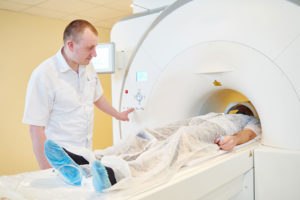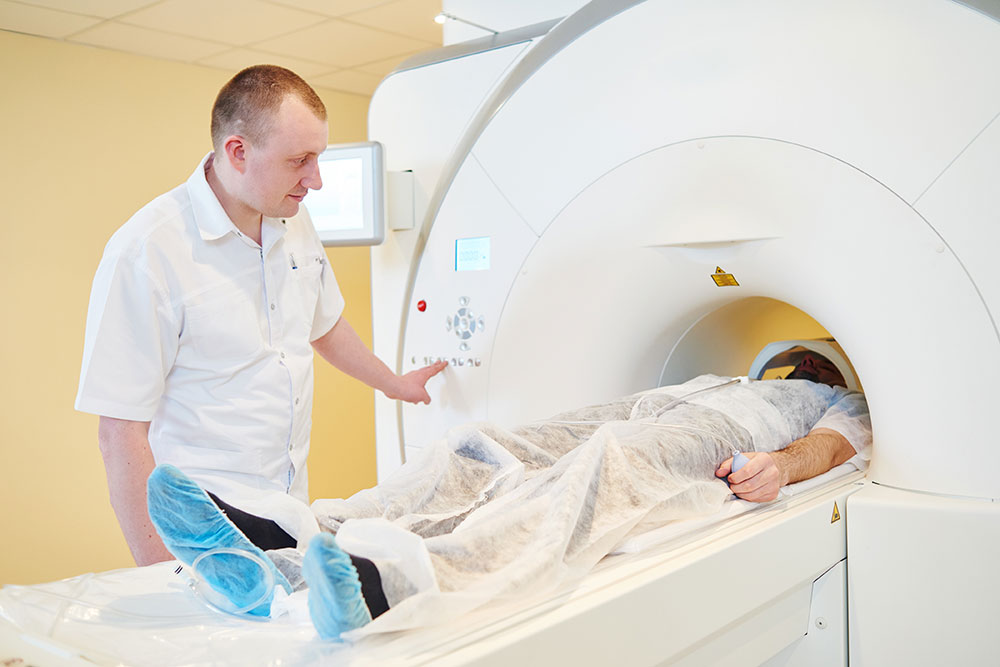Disclaimer: The information on our website is provided for general information purposes only. We make no representations or warranties of any kind, express or implied, about the completeness, accuracy, reliability, suitability or availability with respect to the website or the information contained on our website for any purpose. Any reliance on such information is therefore strictly at your own risk and we are not liable for any damages or losses arising out of or resulting from your reliance on any information contained on our website.
An MRI technologist runs Magnetic Resonance Imaging (MRI) scanners at hospitals and diagnostic facilities. Additionally, they work with patients and educate them on what to expect. For example, they help make patients feel comfortable and administer IV drugs to provide a better contrast on the scanned images. Next, watch the following video and learn what a MRI Technologist does:
How to Become an MRI Technologist

The American Registry of Radiologic Technologists or AART shares that you must earn an associate’s degree from an approved AART program in order to take the AART certification exam. You would want to look for and research magnetic resonance imaging programs to start your educational journey. These programs would provide classroom and hands-on training. You may find yourself gaining an associate’s degree in radiologic technology and then gaining a specialization in MRIs.
According to O*NET OnLine, many MRI technologists have an associate’s degree while others earn a certification after high school. Only a few in this field have continued with college after earning an associate’s degree to gain a bachelor’s degree.
Job Description of an MRI Technologist
MRI technologists ensure quality diagnostic images are produced from an MRI scan of a patient. Having a good rapport is important in order to make them comfortable while the scan is occurring. Movement from the patient can have negative effects on the scan. They would also educate the patient on what procedures will take place, administer an IV if necessary in order to enhance the contrast within the scanned images, and position the patient on the table per any instructions provided by a physician. An MRI technologist also reviews the images to ensure they have a quality scan and can be read.
MRI Technologist Career Video Transcript
Using a combination of technical skills, people skills, and physical stamina keeps the job of magnetic resonance imaging technologists (or MRI) interesting and challenging. MRI technologists put patients at ease and provide essential medical information in a career focused on operating MRI scanners to create diagnostic images. MRI technologists prepare patients for procedures, taking their medical history and answering questions. They inject patients with contrast dyes that interact with magnetic fields to produce images that physicians use to diagnose medical problems.
During the MRI procedure, technologists correctly position the patient, shield exposed areas, and operate the equipment to take the images. They must follow physicians’ orders precisely to capture the correct images and keep detailed patient records. MRI technologists put patients at ease, helping them cope with pain or mental stress. They use technical skills to understand and operate complex equipment. They also work on their feet much of the day, lifting and moving patients when needed.
MRI technologists work in healthcare facilities; more than half work in hospitals. Most work full-time and may work evenings, weekends, or are on call where emergency imaging is needed. An associate’s degree combining classroom and clinical training is the most common educational path. Coursework should include anatomy, patient care, radiation physics, and image evaluation. Many MRI technologists start out as radiologic technologists who develop specialization in MRIs. Licenses or certification to practice are required in some states.
Article Citations
Bureau of Labor Statistics, U.S. Department of Labor, Occupational Outlook Handbook, Radiologic and MRI Technologists.
National Center for O*NET Development. 29-2035.00. O*NET OnLine.
The career video is in the public domain from the U. S. Department of Labor, Employment and Training Administration.

